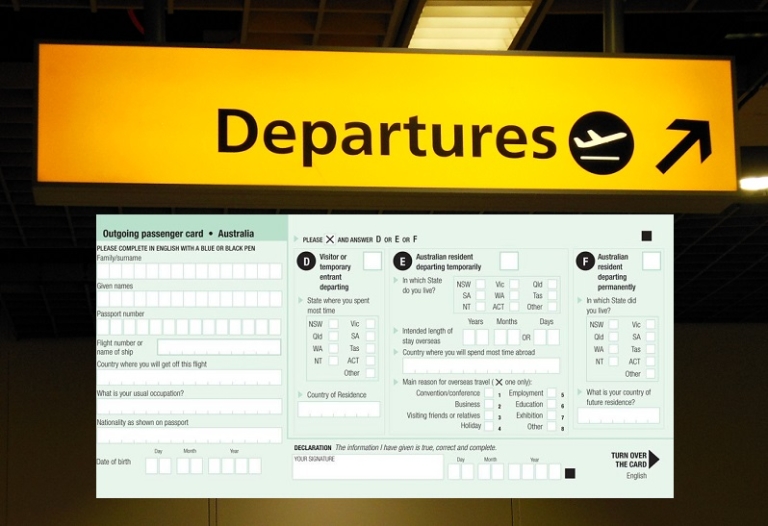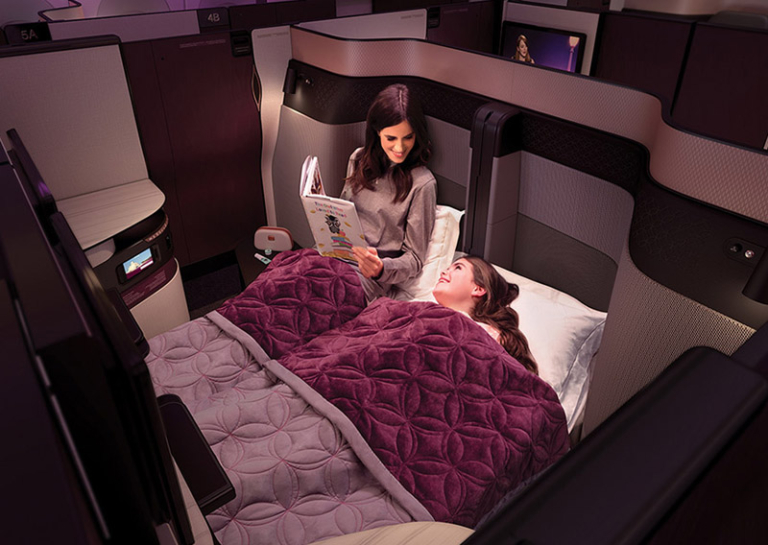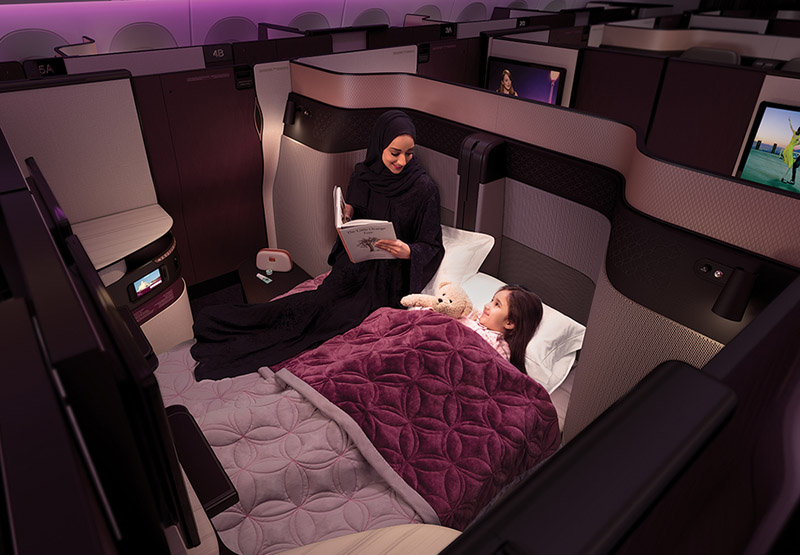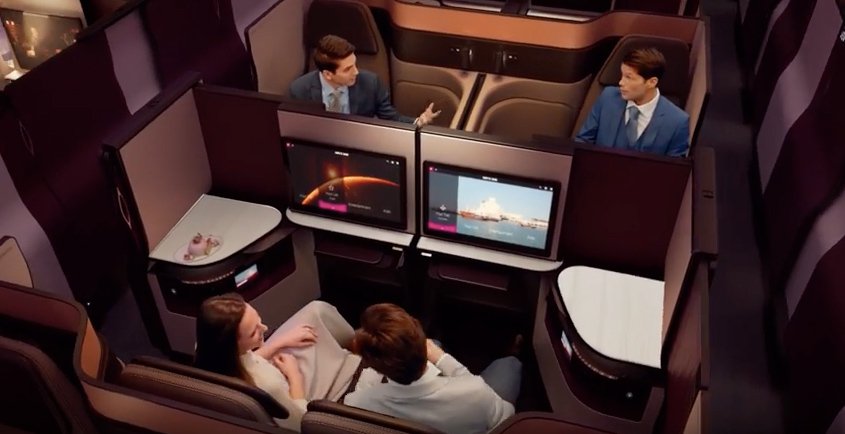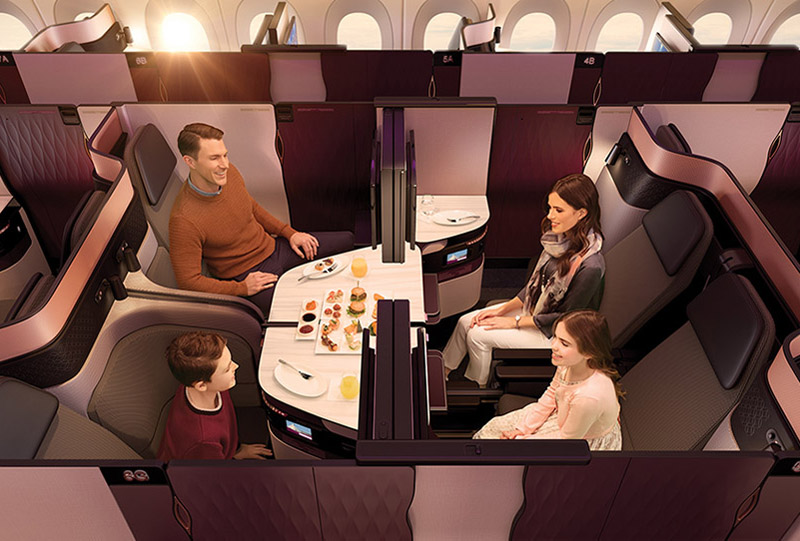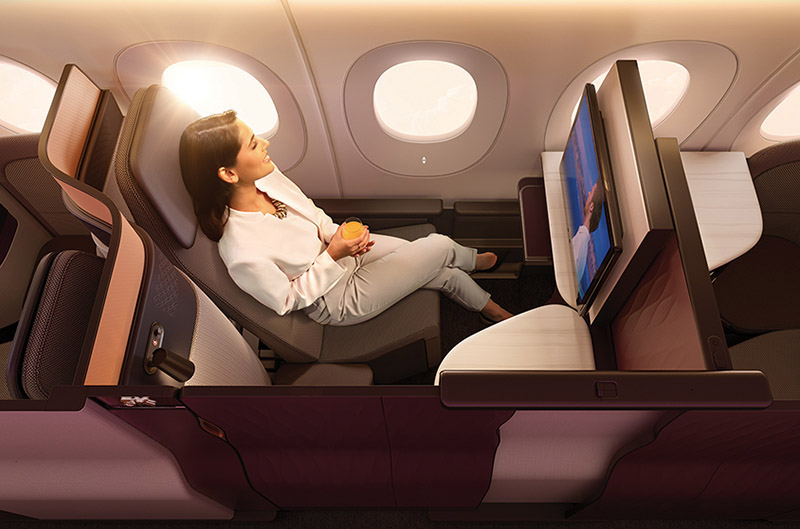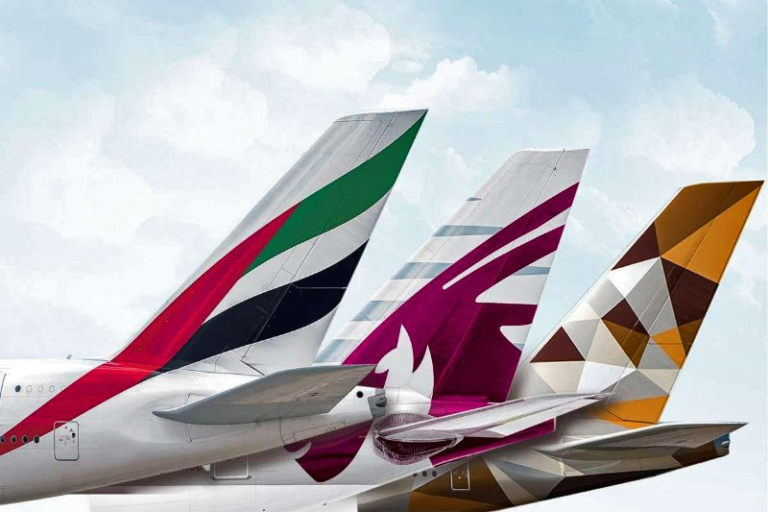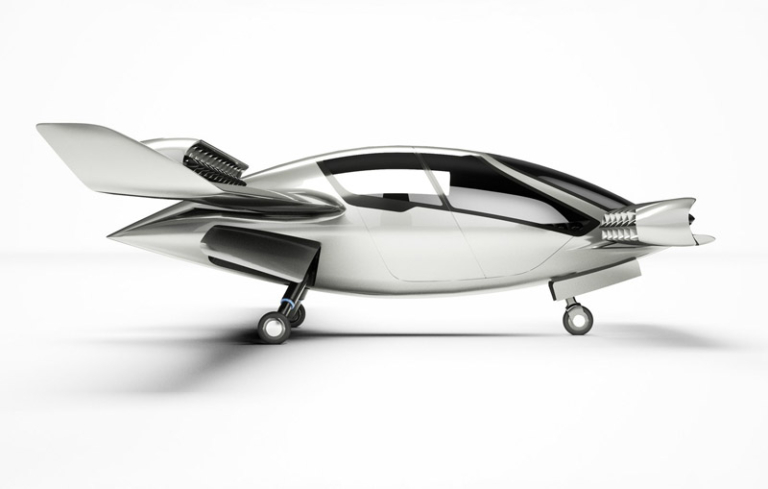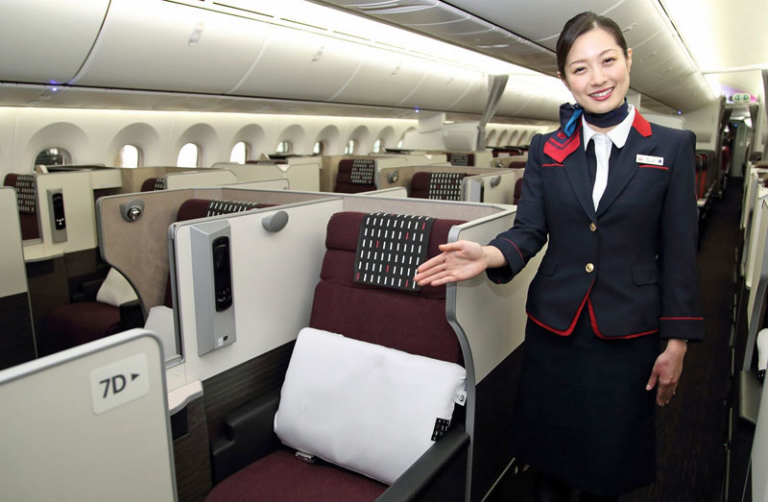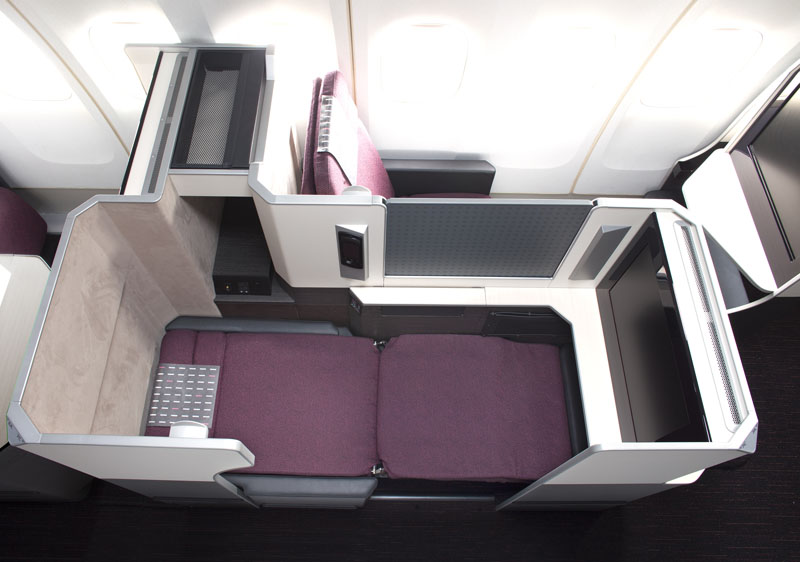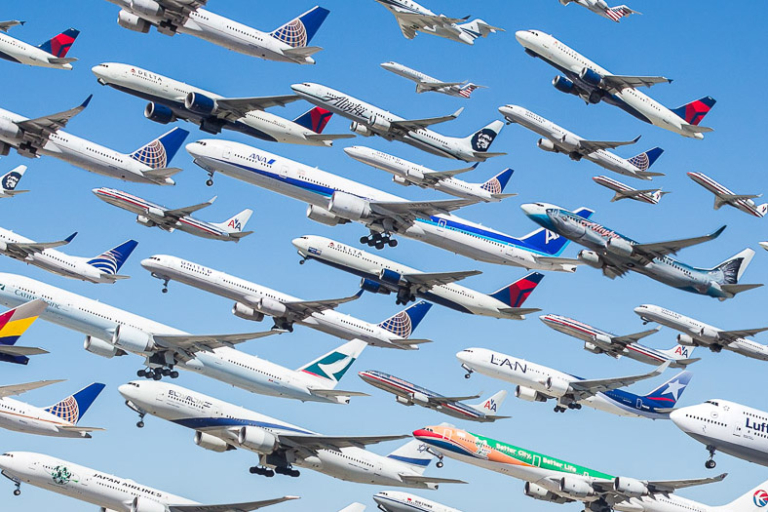The three big Middle Eastern airlines – Emirates, Etihad and Qatar Airways – have driven so many improvements in air travel in recent years. Thanks to them (and a handful of other carriers), we now enjoy better experiences in the air, more route options and lower prices than ever before.
One reason the gulf airlines have done so well is their massive investment in new planes, fitouts and other infrastructure. For passengers at the pointy end, this splurge has brought luxurious lounges, spacious seats, on-board bars and showers, and many other stylish innovations.
This trend is set to continue. Qatar Airways is about to roll out its business class ‘QSuite’ which, for the first time ever, gives business class passengers the option of booking a double bed in the sky. Emirates has also announced it will launch first and business class seats by the end of the year.
In these ‘physical’ aspects – the lounges, seats and other infrastructure – the gulf carriers are among the best in the world, and that’s helped them capture a big slice of the market. But there’s one important part of the passenger experience that often lets these airlines down, and that’s inconsistent customer service on board – particularly in business class.
On one flight you may be served by a warm and attentive crew, and on the next a crew that just doesn’t seem to care. If you’re flying in economy, you may not expect that much, but in premium cabins that attract a hefty price tag, customer service is a big deal.
Here’s an example of what I’m talking about. My partner and I have flown with Emirates in business class three times over the past year. The first two times, the crew were quite friendly and efficient. Earlier this week, however, they were disinterested and even rude (one curtly told my partner to turn his IPad off for take-off, even though it was in flight mode, as permitted), and the service was careless and inefficient (for example, three of our food orders came out late and wrong, with no explanation or apology).
You don’t encounter this kind of inconsistency on other premium airlines in the region. When I board a Singapore Airlines, Cathay Pacific or Japan Airlines flight, I almost always get the polite and polished service I’ve come to expect. When I fly with Qantas, the crew tend to be more relaxed, but still generally very friendly and attentive.
But with the Middle Eastern airlines? I can’t be so sure.
Before writing this post, I spoke to quite a few travellers who regularly fly through the Middle East, and their experiences are similar to mine. This issue seems to come up with all three Middle Eastern carriers, though perhaps less frequently with Qatar Airways than the others (based on the conversations I’ve had, at least).
I understand that the gulf carriers have a huge staff who come from a variety of cultures and with potentially different views about what constitutes good customer service. Very few other airlines face the challenge of integrating so many diverse people. But even accounting for that, I feel the airlines could do more to train and encourage their crew to meet the high service standards set by other premium carriers.
Since customer service in the air is so important to me, I’ll now think twice about flying with a Middle Eastern airline if there is another, more dependable option. In today’s competitive market, there are plenty of carriers that offer great seats and lounges, and can be counted on to provide top-notch service on board.

